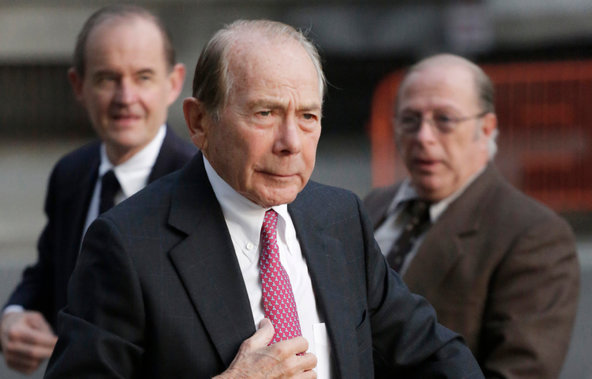The agency, the Central Commission for Discipline Inspection of the Communist Party, which runs corruption inquiries involving senior officials, said Mr. Liu was “suspected of grave violations of discipline, and is now under investigation by the organization,” according to a report from Xinhua, the state news agency.
The report came more than five months after the journalist, Luo Changping, boldly challenged Mr. Liu and investigators by publicly accusing Mr. Liu of shady business deals and other wrongdoing like threatening to kill his mistress and overstating his academic qualifications. Mr. Luo laid out the charges on the Internet in early December. They lingered there, despite a denial by a spokesman for Mr. Liu and the power of censors to erase the postings, which fanned a public uproar.
Yet for months it appeared that Mr. Liu might survive the scandal. Since 2008, he has been a deputy chairman of the National Development and Reform Commission, an agency that oversees many areas of economy policy. Until March, he was also head of the National Energy Administration, and he made several public appearances after Mr. Luo made the accusations, according to Chinese news reports.
The Xinhua report did not detail the official allegations against Mr. Liu. But Mr. Luo, a deputy editor of Caijing Magazine in Beijing, said he was sure they were related to his accusations.
“I know there’s a direct connection, but I can’t say any more,” Mr. Luo said in a telephone interview.
“I had felt panicky before because nothing was happening, but I’ve breathed a sigh of relief now that this has happened,” he said, referring to the inquiry.
Mr. Liu, 58, could become a trophy in the effort by China’s new leader, Xi Jinping, to persuade disenchanted citizens that he is serious about ending abuses by officials. Since becoming party chief in November, Mr. Xi has vowed to clamp down on corruption, extravagance and self-enrichment; he has said both “flies” and “tigers” — junior and senior officials — would come under scrutiny.
Other officials under investigation for corruption and other crimes include Bo Xilai, a former Politburo member whose wife, Gu Kailai, was convicted and in August given a death sentence, which was then suspended, on charges of murdering a British businessman. In April, the former railway minister, Liu Zhijun, was charged with corruption and abuse of power.
The Central Commission for Discipline Inspection wields broad powers to detain officials and pursue secretive inquiries. In serious cases, the commission can hand officials over to the police and prosecutors to be investigated on criminal charges, which almost always end in convictions and sentences by party-run courts.
Despite Mr. Luo’s apparent vindication, Chinese leaders are wary of letting the public seize the initiative in fighting corruption. “What I really hope to see is more change at the institutional level to fight corruption, not just focusing on individual cases,” Mr. Luo said.
Article source: http://www.nytimes.com/2013/05/13/world/asia/china-eyes-liu-tienan-an-official-challenged-by-a-journalist.html?partner=rss&emc=rss

